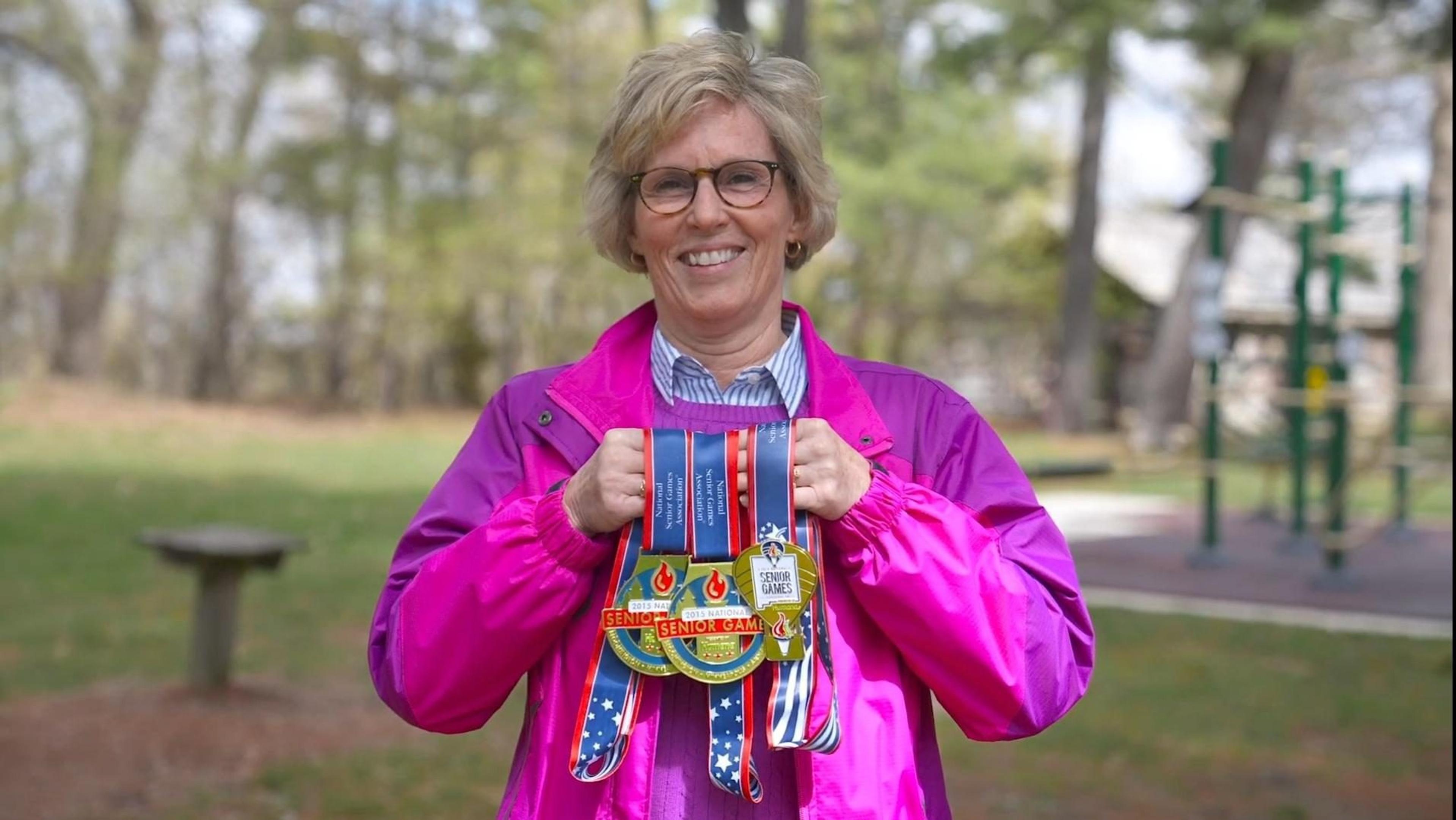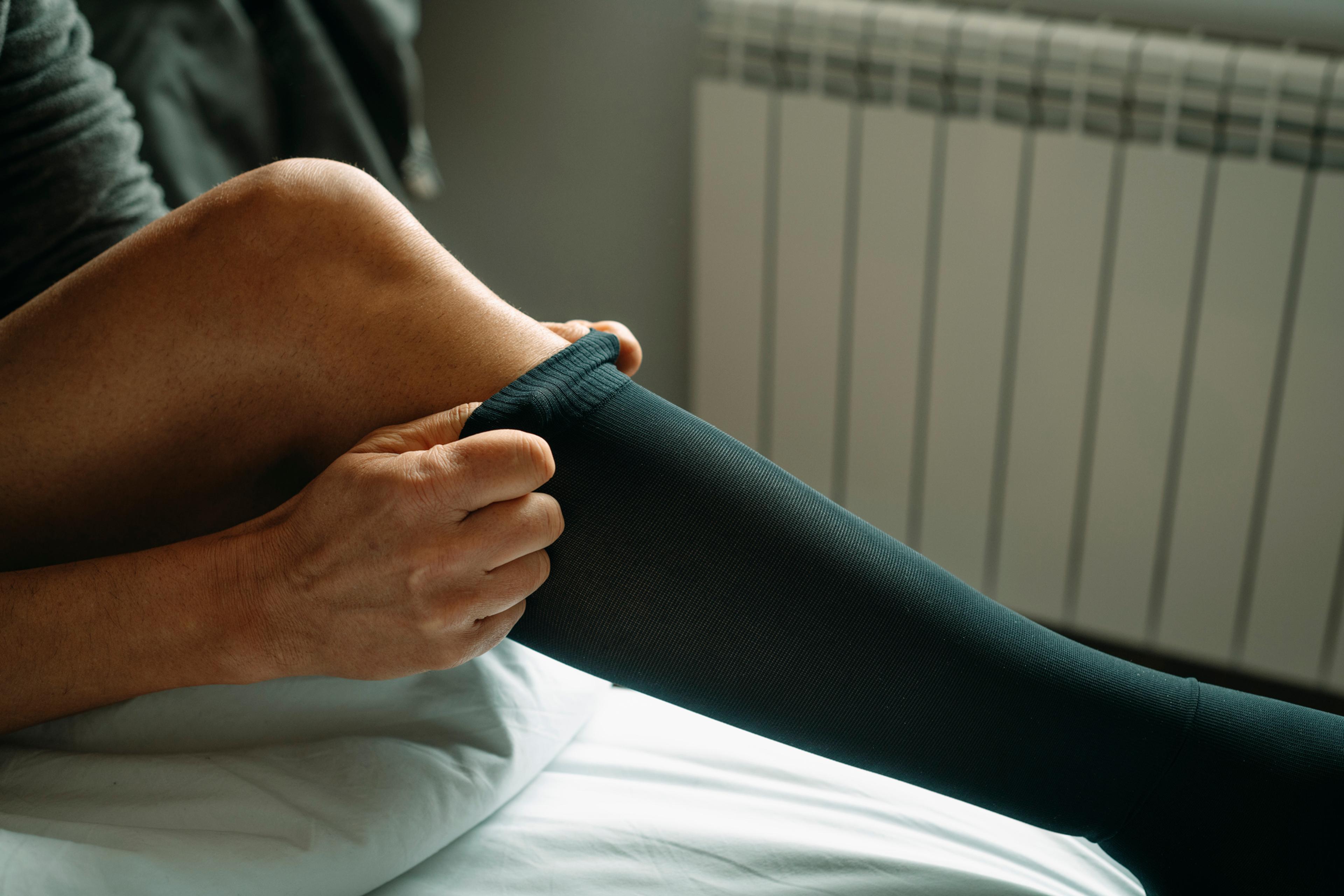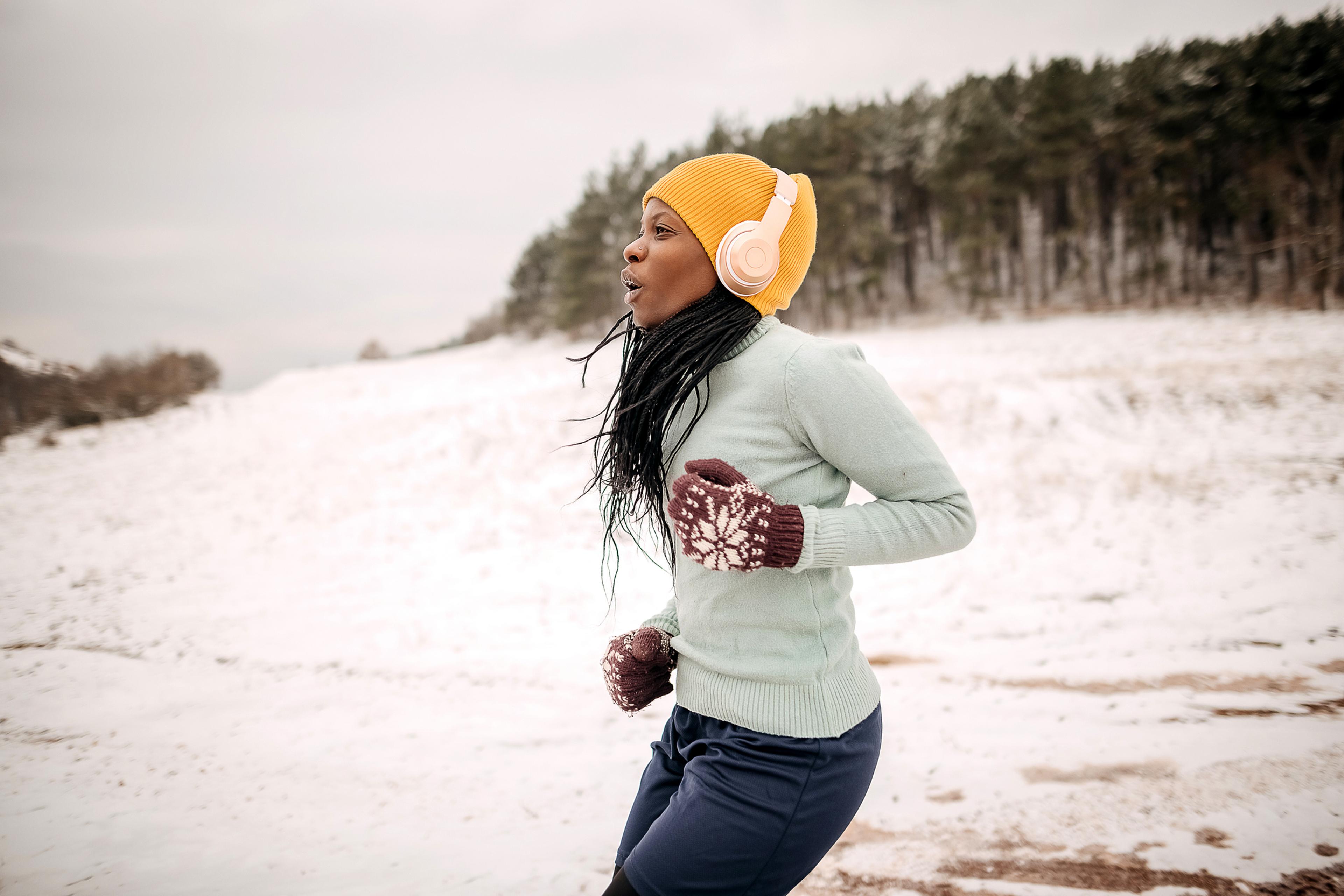Michigan Senior Olympics Hall of Famer Shares the Keys to Senior Fitness
Jake Newby
| 5 min read

By the time most people reach their 50s and 60s, getting active and recovering from physical activities are tougher to do than they were earlier in life. Bones become more brittle, joints get a little stiffer and overall mobility isn’t as fluid.
Lisa Hypnar – a lifelong athlete and Michigan Senior Olympics Hall of Famer – is well aware of the physical limitations brought on by the aging process. But the 68-year-old Rochester Hills resident has kept Father Time at bay by making critical investments in her health after the age of 50, investments that all senior citizens stand to benefit from.
The benefits of swimming
In 2010, Hypnar knew she had a decision to make. A proficient tennis player her entire adulthood, Hypnar started to grow fonder of competitive swimming. “Do I stay with tennis, or do I commit more time to swimming? Because I could do both, but I couldn’t do both well,” Hypnar said, during an interview with Blue Cross Blue Shield of Michigan.
“I was working full time and I didn’t have that many hours in the day to commit to both sports.” Hypnar was experiencing some neck issues and noticed aches and pains in her joints. By switching to swimming, Hypnar mitigated those ailments. “It’s low impact,” she said of swimming.
Aside from being easier on the joints, Hypnar turned to swimming in part because of its cardiovascular benefits. “It’s great cardio,” she said. “And if you compare someone who does weight training in a weight room and somebody who does aerobic work in a swimming pool, there’s more resistance but there’s less trauma to the joints. So, if you’ve got someone as they get older and they’re starting to get arthritis and creaks and stuff like that, you can turn to swimming.”
Swimming doesn’t feel like a chore for Hypnar, who said it’s key for seniors to find a form of fitness they enjoy doing. That way, they are likelier to be consistent. “Find your passion, find something that you like to do,” she said. Over the last 10 years, Hypnar has been nationally recognized for her skill inside the pool with multiple top 10 finishes in a variety of different events at the National Senior Games. She said she couldn’t have gotten to where she is today without making the life-changing decision to quit smoking cigarettes in 2009.
How ditching cigarettes was a game changer
“I can tell you this, when I hit the water, and I swam 25 yards, I thought I was going to die,” Hypnar said, or her first few times swimming as a smoker. “I couldn’t breathe. To be that out of breath in that short a period of time was probably my biggest ‘ah ha’ moment.” “I just knew that I didn’t want someone knocking on my door telling me to get my affairs in order because of decisions I made,” she recalled. “It’s not like it’s anybody else’s fault, it would be my fault. So, at that point in time, I had to grab ‘hold of the reigns real tight and say, ‘I’m done.’”
Cigarettes were like a weighted blanket holding Hypnar down in the pool. She said her stamina was noticeably better soon after quitting.
Cigarette smoking hinders athletes in multiple ways, according to the Centers for Disease Control and Prevention (CDC). The nicotine inside them can narrow blood vessels and strain the heart. Smoking also reduces oxygen available for muscles used during sports. Smokers also suffer shortness of breath almost three times more often than nonsmokers, per the CDC. BCBSM and Blue Care Network members can enroll in online tobacco coaching programs. Click here to get started.
Get up and move
For seniors who would like to get active but may not know where to start, Hypnar suggested going outside and walking for 10 minutes a couple of times a day. “As we get older, because our posture changes and our muscles get weak, that’s what gives us an increased propensity to fall,” she said. “Which then, we fracture our wrist, we fracture our arm, we fracture our hip. So, sitting on the couch doesn’t get you stronger. So, I think, it’s just a matter of strengthening the muscles you already have.” Two more equipment-free forms of light physical activity Hypnar suggested seniors try at home include:
- Repeatedly sitting in a chair and standing back up, essentially mimicking a squat.
- Bicep curling canned soups or vegetables.
“It’s those sort of things to start with and then you move on,” she said. “It’s not going to happen overnight.” Hypnar added that seniors who commit to some sort of physical activity routine should be less likely to injure their bones as they age. “We know that as people age and their activity level decreases, so does bone density,” Hypnar said. “If you can keep your muscles and bones strong you will slow down the process of osteoporosis. Sitting and doing absolutely nothing is not going to help you. So, if you have the opportunity to take control of that yourself, and do what you can, you’re going to be a whole lot better off. Not only physically but mentally, because you added activity to your life.”
National Senior Fitness Day is May 25. If you’re a senior citizen interested in increasing your activity level this spring and summer, consider enrolling in SilverSneakers, a health and fitness program targeting adults age 65 and older. SilverSneakers is an extra benefit included in all 2022 Blue Cross Blue Shield of Michigan Medicare Advantage plans and is available at no additional cost. If you’re interested in signing up, click here for an instant eligibility check. If eligible, you can acquire your member ID by clicking here.
Photo credit: Lisa Hypnar and Blue Cross Blue Shield of Michigan
Read on:





